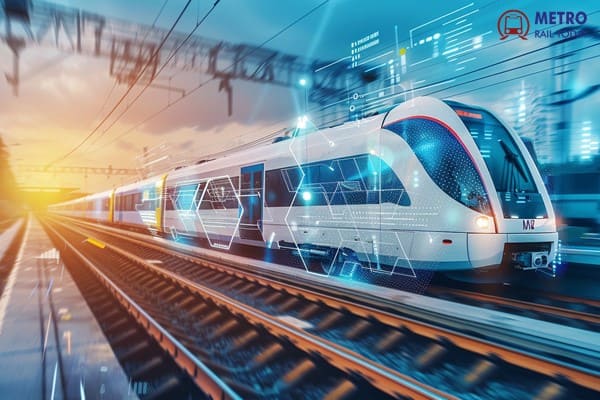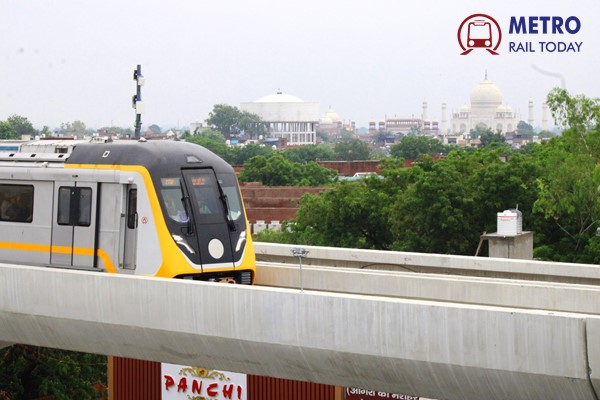 Civil tender issued for construction of Mall Road depot of Agra Metro Corridor 2
Civil tender issued for construction of Mall Road depot of Agra Metro Corridor 2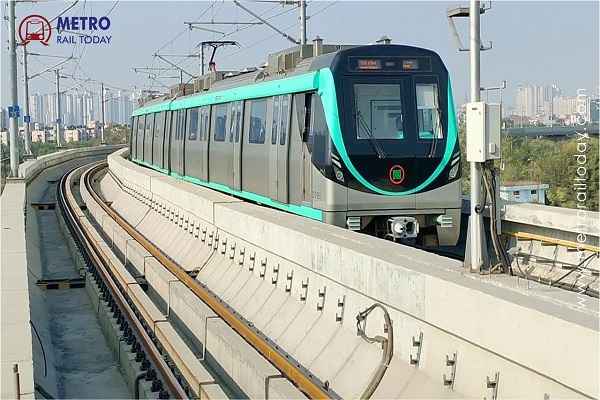 Govt of India cabinet approves ₹2,372 crore Noida Metro Aqua Line Extension Project
Govt of India cabinet approves ₹2,372 crore Noida Metro Aqua Line Extension Project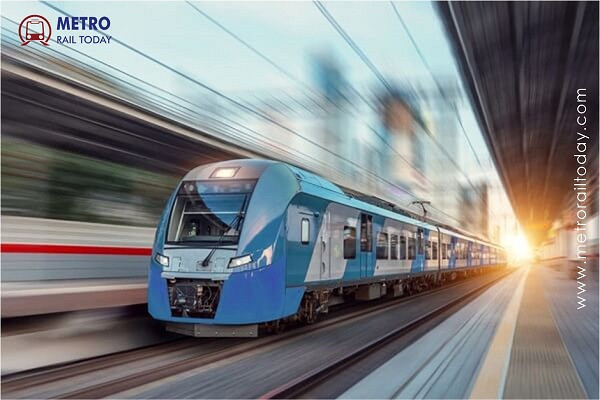 Bengaluru Suburban Rail Project completion deadline extended to March 2030
Bengaluru Suburban Rail Project completion deadline extended to March 2030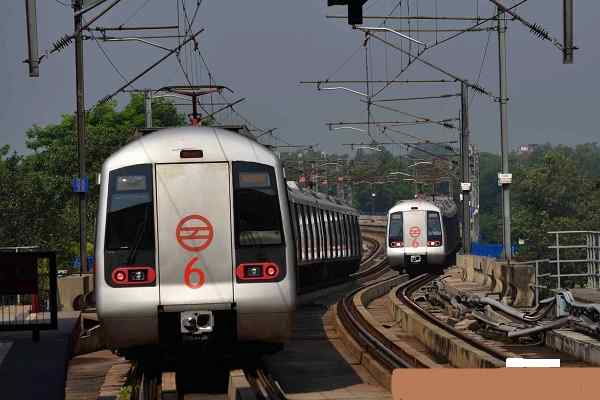 Tender issued for 68 Broad Gauge Rolling Stock Cars for Red Line Extn under Delhi Metro Phase 4
Tender issued for 68 Broad Gauge Rolling Stock Cars for Red Line Extn under Delhi Metro Phase 4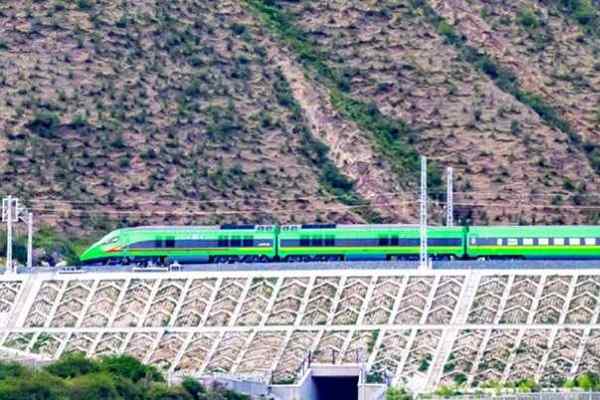 Saudi Arabia and Qatar approve 785 km High-Speed Rail Link between Riyadh and Doha
Saudi Arabia and Qatar approve 785 km High-Speed Rail Link between Riyadh and Doha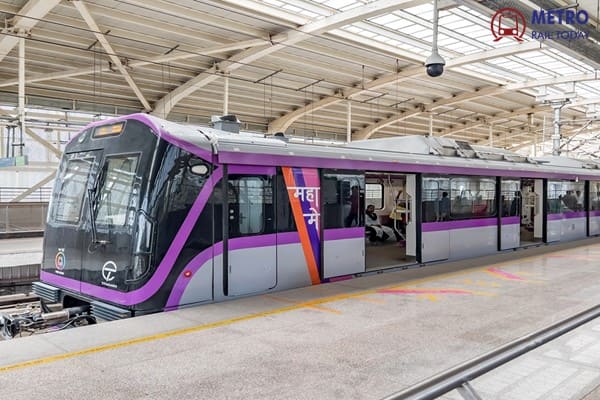 Colossus Infra awarded E&M Contract for Pune Metro’s PCMC–Nigdi Corridor
Colossus Infra awarded E&M Contract for Pune Metro’s PCMC–Nigdi Corridor Riyadh Metro invites Bids for Expo 2030 Station on Yellow Line
Riyadh Metro invites Bids for Expo 2030 Station on Yellow Line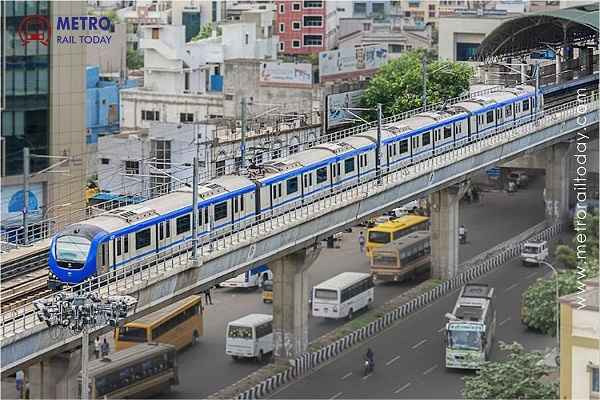 Knorr-Bremse to invest €200 million to develop Technology and AI Hub in Chennai, India
Knorr-Bremse to invest €200 million to develop Technology and AI Hub in Chennai, India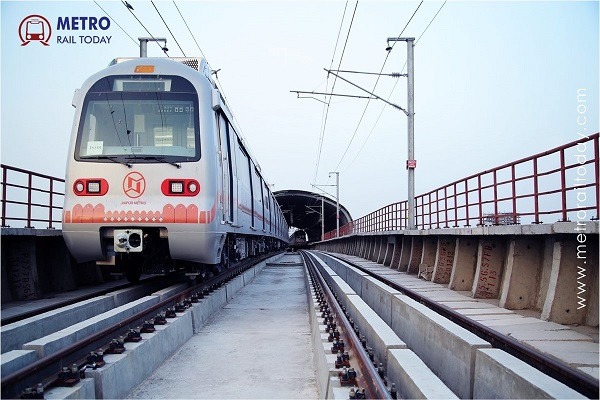 Ceigall - SAM India JV awarded ₹918 crore Civil Contract for Jaipur Metro Phase 2 Project
Ceigall - SAM India JV awarded ₹918 crore Civil Contract for Jaipur Metro Phase 2 Project How Do Contractors Make Sure There’s No Flooding While Building Subways?
How Do Contractors Make Sure There’s No Flooding While Building Subways?
India's First Hydrogen Train begins trials, marking a New Era in sustainable Rail Travel
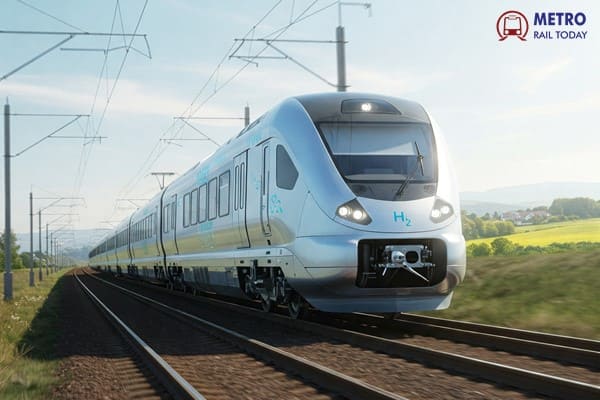
New Delhi, India (Metro Rail Today): In a historic move towards green transportation, India’s first hydrogen-powered train has officially commenced its trial run on the 89-km-long Jind-Sonipat route in Haryana. Manufactured by the Integral Coach Factory (ICF) in Chennai, this eco-friendly locomotive is a significant step forward in the country's sustainability initiatives. The train, which can reach speeds of up to 110 km per hour, consists of a passenger coach and two additional coaches specifically designed for hydrogen storage.
A Major Leap in Green Rail Technology
The hydrogen-powered train operates with a 1,200-horsepower engine and has a total passenger capacity of 2,638. As part of Indian Railways’ broader green energy push, the government has allocated ₹2,800 crore for the development of 35 hydrogen fuel cell-based trains. This move positions India among the leading nations adopting hydrogen-powered rail transport. Following a successful trial phase, Indian Railways aims to integrate these trains into regular service, reducing carbon emissions and bringing the country closer to its ambitious goal of achieving net-zero emissions by 2030.
Hydrogen Rail Expansion to Heritage and Mountainous Routes
Under the ‘Hydrogen for Heritage’ initiative, Indian Railways plans to deploy 35 hydrogen trains on heritage and mountainous routes. The government has earmarked ₹600 crore for infrastructure development to facilitate efficient hydrogen storage and refueling.
Railway Minister Ashwini Vaishnaw highlighted the significance of this initiative in the Rajya Sabha, stating, "This project reinforces Indian Railways' commitment to alternative energy-powered train travel, ensuring a cleaner and greener future for India’s transportation sector."
Cutting-Edge Features and Environmental Benefits
Hydrogen-powered trains run on fuel cells that generate electricity while emitting only water and heat, making them a sustainable alternative to diesel locomotives. Each train is estimated to cost ₹80 crore, and once fully operational, India will join the ranks of Germany, China, and the UK—countries that have successfully integrated hydrogen rail technology.
Key Benefits of Hydrogen Trains:
-
Zero Carbon Emissions: Producing only water vapor as a byproduct, these trains significantly reduce air pollution.
-
Energy Efficiency: Hydrogen fuel cells provide a more efficient alternative to fossil fuels.
-
Long-Term Cost Savings: Although initial investments are high, reduced fuel costs and environmental benefits make these trains financially viable in the long run.
-
Noise Reduction: The quiet operation of hydrogen trains enhances passenger comfort.
To support the deployment of hydrogen trains, Indian Railways is establishing integrated hydrogen production, storage, and refueling facilities. The necessary safety approvals from the Petroleum and Explosives Safety Organisation (PESO) have already been secured.
Challenges and Delays in Launch
Despite the enthusiasm surrounding this groundbreaking initiative, multiple sources have indicated potential delays in the full-scale launch of India's first hydrogen fuel cell train. Initially scheduled to operate on the heritage Kalka-Shimla route by December 2024, recent testing has revealed technical challenges that may push the launch to mid-2025.
"During testing, we discovered that the hydrogen fuel cell capacity needs to be increased to support the train's full load-carrying capacity," a senior Indian Railways official told Moneycontrol. Adjustments to the fuel cell system are expected to take an additional two to three months, along with further testing, before commercial operations commence.
Indian Railways has also been working to strengthen the train tracks between Shimla and Kalka to ensure the train can operate at speeds close to 100 km/hr. Executives from the renewable energy sector have been invited to evaluate the current prototype and suggest improvements.
A Step Towards Carbon-Neutral Railways
Manufactured by the Chennai-based ICF, this hydrogen train represents a crucial milestone in India's transition to zero-emission transportation. The Railway Ministry had initially allocated ₹2,800 crore in the 2023-24 financial year for the development of hydrogen fuel cell-based trains, emphasizing the government's commitment to cleaner energy solutions.
Once operational, these hydrogen trains will require approximately 40,000 liters of water per hour to facilitate the necessary chemical reactions in the fuel cells. To support this, dedicated water storage and hydrogen refueling stations will be constructed.
India’s foray into hydrogen-powered rail transport cements its place among the elite nations pioneering this technology. The launch of these trains will not only modernize the country’s railway infrastructure but also contribute significantly to environmental conservation and sustainable tourism.
As part of the government’s ‘Hydrogen for Railways’ initiative, Indian Railways is working closely with regulatory bodies and industry experts to ensure the smooth integration of hydrogen trains into the national network. With safety approvals from PESO already in place, the groundwork is being laid for a cleaner, greener future in Indian rail transport.
Looking Ahead
While technical challenges have caused minor setbacks, the vision for hydrogen-powered rail in India remains strong. Once fully operational, these trains will offer an efficient, eco-friendly alternative to conventional rail transport, aligning with India’s broader sustainability goals. The successful deployment of hydrogen trains will not only revolutionize Indian Railways but also set a global benchmark for green transportation initiatives.
Stay tuned for further updates on India's journey towards a sustainable railway revolution.





